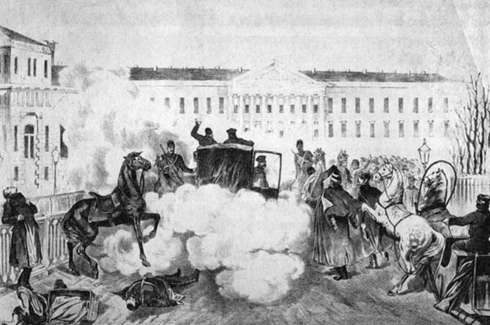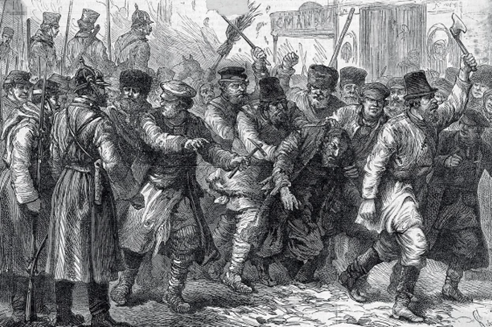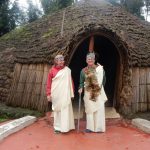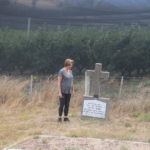Bengamin Grin most likely[1] my Jewish great-grandfather, came from Lithuania before 1886, the year his son, my grandfather Cecil Green was born in Winburg, on the farm Koffiefontein. Good evidence shows he is my great-grandfather.
Bengamin, from Poshvetin, fled Eastern Europe with his family, to escape the anti-Jewish pogroms (Figure 136: Pogrom in Lithuania) in the Russian Empire and from anti-Semitism sweeping Europe.
When the pogroms escalated, many were killed, homes plundered, and livelihoods lost. Thousands of Jews left Lithuania, emigrating to South Africa and the United States.
Bengamin sought freedom and a new life amongst the Boers in South Africa.
The trail that led to Bengamin was through genealogical research using the Geni website[2]:
- My grandfather Cecil Arthur Green has two children mentioned on his death certificate, Cecil Arthur, my father, and a daughter named Evelin.
- Bengamin Green had a daughter named Evelin and two unknown sons. There were a number of Evelyn’s in this family tree.
- There are no birth certificates for Cecil Arthur in the Cape Colony or Orange Free State archives. Many Jewish migrants wanted to hide their Jewish background.
- Many Jewish migrants married Boer women. Cecil Arthur married my Boer grandmother, Susanna Britz-a second marriage after his first wife died during the Spanish flu.
My grandfather, Cecil Green, and his brother (unknown) spoke Yiddish—told to me by my father and on his deathbed.
Appendix
Jews had lived in the area now known as Lithuania since the fourteenth century. Between 1569 and 1792, when it came under Russian control, Lithuania was part of the Polish-Lithuanian Commonwealth, one of the largest empires in history.
Within the empire and afterwards, Lithuanian Jews remained a distinct group known as Litvaks. The vast territory where they lived included areas of northeastern Poland and areas of Belarus, Latvia, and Prussia.
While part of the Russian Empire, Antisemitism and official anti-Jewish policies interrupted the growth of the Jewish community. Tensions escalated when the Russian government blamed the Jews for the assassination of Tsar Alexander II in 1881 (Figure 135, below).
A month after the assassination, waves of pogroms ((Figure 136: Pogrom in Lithuania) followed, and attacks in Lithuania were launched against Jewish homes, businesses, and synagogues.
These pogroms dealt a massive blow to Jewish communities in the region. Like my Huguenot ancestors who faced similar conditions, fleeing, converting or remaining incognito, were the only alternatives. Many Jews were killed, and their homes plundered; in response, thousands of Jews looked to leave Lithuania, with many emigrating to South Africa.
In 1882, the May Laws in Imperial Russia were passed which prevented Jews such as Bengamin living in Lithuania from living outside larger cities and towns, owning property, leasing land, and running their businesses on Sundays or other Christian holidays.


[1] Jewish refugees often changed their names and identities when they arrived in South Africa. There are no records in the archives for my English/Yiddish-speaking grandfather Cecil Green. There is strong evidence that there is a connection.
[2] Geni is an American commercial genealogy and social networking website, founded in 2006, and owned by MyHeritage, an Israeli private company, since November 2012. Wikipedia.



